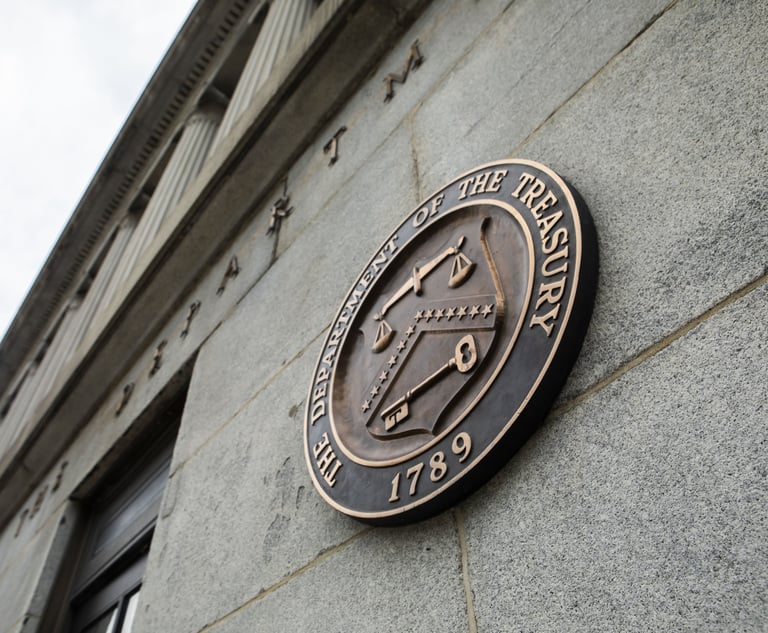 Quentin Brogdon is a personal injury trial lawyer in Dallas, Texas. Courtesy Photo
Quentin Brogdon is a personal injury trial lawyer in Dallas, Texas. Courtesy Photo Texas Supreme Court Lets Drunk Drivers Take the Fifth After Drinking a Fifth
"Although the Fifth Amendment privilege against self-incrimination is not absolute, the Texas Supreme Court found it trumps the discovery needs of civil litigants, even if the privilege effectively bars a civil action from proceeding forward," according to Quentin Brogdon of Crain Brogdon.
October 25, 2024 at 10:00 AM
7 minute read
In In re Taylor Brock Peters this year, the Texas Supreme Court considered the tension between the Fifth Amendment of the U.S. Constitution and the discovery needs of litigants in civil lawsuits. In Peters, a civil dram shop case filed by an injured motorist who was severely injured in a crash involving a drunk driver, the court allowed the drunk driver to invoke the Fifth Amendment to avoid providing the names of the bars that served him alcohol in response to discovery from the injured motorist. The court found the Fifth Amendment trumps discovery needs in civil cases, even if assertion of the privilege effectively bars a civil action from proceeding forward.
The Fifth Amendment of the U.S. Constitution states that "[n]o person … shall be compelled in any criminal case to be a witness against himself." The privilege also extends to civil litigation and the privilege may bar civil discovery. The privilege applies to testimony that could directly incriminate a witness and testimony that indirectly could furnish an evidentiary link that could incriminate a witness. Further, when a witness voluntarily discloses an incriminating fact, there is authority for the proposition that the witness cannot invoke the privilege to prevent disclosure of the details surrounding the fact.
NOT FOR REPRINT
© 2025 ALM Global, LLC, All Rights Reserved. Request academic re-use from www.copyright.com. All other uses, submit a request to [email protected]. For more information visit Asset & Logo Licensing.
You Might Like
View All
Supreme Court Appears Sympathetic to Law Requiring Porn Sites to Verify Users' Age

The Gospel According to Paxton? AG Fights Religious Group Over Migrants
6 minute read
Corporate Disclosure Law Enjoys ‘Presumption of Constitutionality,’ Feds Tell Justices

Texas Attorneys Put Civil Rights Nonprofits on Notice About Defaming Right-Wing Conservatives
3 minute readTrending Stories
- 1Gen AI and Associate Legal Writing: Davis Wright Tremaine's New Training Model
- 2Departing Attorneys Sue Their Former Law Firm
- 3Pa. High Court: Concrete Proof Not Needed to Weigh Grounds for Preliminary Injunction Order
- 4'Something Else Is Coming': DOGE Established, but With Limited Scope
- 5Polsinelli Picks Up Corporate Health Care Partner From Greenberg Traurig in LA
Who Got The Work
J. Brugh Lower of Gibbons has entered an appearance for industrial equipment supplier Devco Corporation in a pending trademark infringement lawsuit. The suit, accusing the defendant of selling knock-off Graco products, was filed Dec. 18 in New Jersey District Court by Rivkin Radler on behalf of Graco Inc. and Graco Minnesota. The case, assigned to U.S. District Judge Zahid N. Quraishi, is 3:24-cv-11294, Graco Inc. et al v. Devco Corporation.
Who Got The Work
Rebecca Maller-Stein and Kent A. Yalowitz of Arnold & Porter Kaye Scholer have entered their appearances for Hanaco Venture Capital and its executives, Lior Prosor and David Frankel, in a pending securities lawsuit. The action, filed on Dec. 24 in New York Southern District Court by Zell, Aron & Co. on behalf of Goldeneye Advisors, accuses the defendants of negligently and fraudulently managing the plaintiff's $1 million investment. The case, assigned to U.S. District Judge Vernon S. Broderick, is 1:24-cv-09918, Goldeneye Advisors, LLC v. Hanaco Venture Capital, Ltd. et al.
Who Got The Work
Attorneys from A&O Shearman has stepped in as defense counsel for Toronto-Dominion Bank and other defendants in a pending securities class action. The suit, filed Dec. 11 in New York Southern District Court by Bleichmar Fonti & Auld, accuses the defendants of concealing the bank's 'pervasive' deficiencies in regards to its compliance with the Bank Secrecy Act and the quality of its anti-money laundering controls. The case, assigned to U.S. District Judge Arun Subramanian, is 1:24-cv-09445, Gonzalez v. The Toronto-Dominion Bank et al.
Who Got The Work
Crown Castle International, a Pennsylvania company providing shared communications infrastructure, has turned to Luke D. Wolf of Gordon Rees Scully Mansukhani to fend off a pending breach-of-contract lawsuit. The court action, filed Nov. 25 in Michigan Eastern District Court by Hooper Hathaway PC on behalf of The Town Residences LLC, accuses Crown Castle of failing to transfer approximately $30,000 in utility payments from T-Mobile in breach of a roof-top lease and assignment agreement. The case, assigned to U.S. District Judge Susan K. Declercq, is 2:24-cv-13131, The Town Residences LLC v. T-Mobile US, Inc. et al.
Who Got The Work
Wilfred P. Coronato and Daniel M. Schwartz of McCarter & English have stepped in as defense counsel to Electrolux Home Products Inc. in a pending product liability lawsuit. The court action, filed Nov. 26 in New York Eastern District Court by Poulos Lopiccolo PC and Nagel Rice LLP on behalf of David Stern, alleges that the defendant's refrigerators’ drawers and shelving repeatedly break and fall apart within months after purchase. The case, assigned to U.S. District Judge Joan M. Azrack, is 2:24-cv-08204, Stern v. Electrolux Home Products, Inc.
Featured Firms
Law Offices of Gary Martin Hays & Associates, P.C.
(470) 294-1674
Law Offices of Mark E. Salomone
(857) 444-6468
Smith & Hassler
(713) 739-1250






